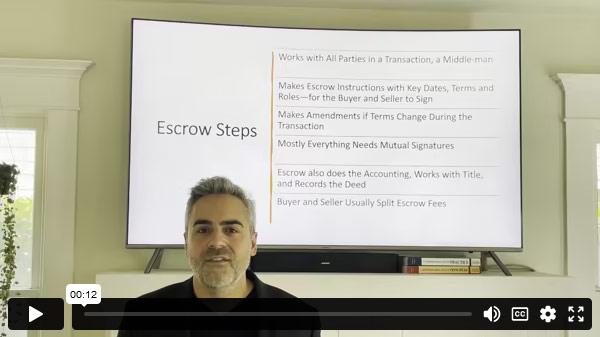Remember the days of too many brokers’ opens to visit in one day and tens of open home signs crowding street corners? Remember pre-Covid-19? This pandemic is wearing on everyone and everything. It has been with us about seven months now and although there are small glimmers of hope, there appears to be no real end in sight. So, you may be wondering what its effects have been on real estate agents and on the real estate market in California. First, the facts.
The Facts and Stats on Covid-19
 Covid-19 cases fell somewhat in our state by May and reopening some “non-essential” businesses in May and June seemed like it could be a sensible thing to do. But an uptick in June to July then became a surge in July to August. The latest numbers from the California Department of Public Health show that as of this writing, there are now 574,411 confirmed cases in California and the state has suffered 10,468 deaths. The positivity rate has fluctuated and is currently 6.1% as deaths continue to climb. And new cases remain high at nearly 9,000 a day. So, sensible, or not, here we are wondering if our children should go back to school, if we should go to work, if we should take that planned vacation, or if we should keep that “for sale” sign up in front of our home.
Covid-19 cases fell somewhat in our state by May and reopening some “non-essential” businesses in May and June seemed like it could be a sensible thing to do. But an uptick in June to July then became a surge in July to August. The latest numbers from the California Department of Public Health show that as of this writing, there are now 574,411 confirmed cases in California and the state has suffered 10,468 deaths. The positivity rate has fluctuated and is currently 6.1% as deaths continue to climb. And new cases remain high at nearly 9,000 a day. So, sensible, or not, here we are wondering if our children should go back to school, if we should go to work, if we should take that planned vacation, or if we should keep that “for sale” sign up in front of our home.
The Hit on the Economy
No doubt, many of us have been thrown for a loop by what the pandemic has done to our every day lives. Unemployment in the state is hovering around a dismal 15%, although that is down a bit from the earlier months of Covid-19, so perhaps we are at least beginning to move in the right direction. But that is still higher than the highest unemployment rate during the Great
Recession in 2009.
California is among the states that needed to reinstitute measures from earlier in the pandemic to shut down sectors of the economy in hopes of halting the surge. Governor Gavin Newsom ordered bars and restaurants to halt indoor dining in mid-July, along with wineries, tasting rooms, movie theaters, museums, zoos, and cardrooms. Many who applied for unemployment insurance benefits in the state early in the pandemic had to apply for benefits a second time in July and August as their employers again shut down. According to the California Policy Lab, those second timers made up 57% of new applicants in the week ending July 25th. And about a third of California’s total workforce, or more than six million people, have applied for unemployment benefits since the middle of March.
So, What About Real Estate?

The good news for real estate agents is that the demand for homes from buyers is still rather robust despite the health and economic news. Why? The interest rates are at an all-time low. As of this writing, they are down around 3% for a 30-year fixed rate mortgage. That not only lowers monthly mortgage payments to make buying a home more affordable, but it produces a hefty savings over the life of that 30-year loan, which is certainly incentive to buy and very good news for buyers and sellers alike. Economic projections also show that the Fed may be open to future reductions in order to counteract the negative impacts of the pandemic to financial markets. And this should help to reduce the cost of borrowing even further and make housing even more affordable over the near term. For buyers who can afford their monthly payments, the economic uncertainty that is driving rates lower provides an opportunity to capitalize on the significantly reduced borrowing costs that they will enjoy for years to come.











